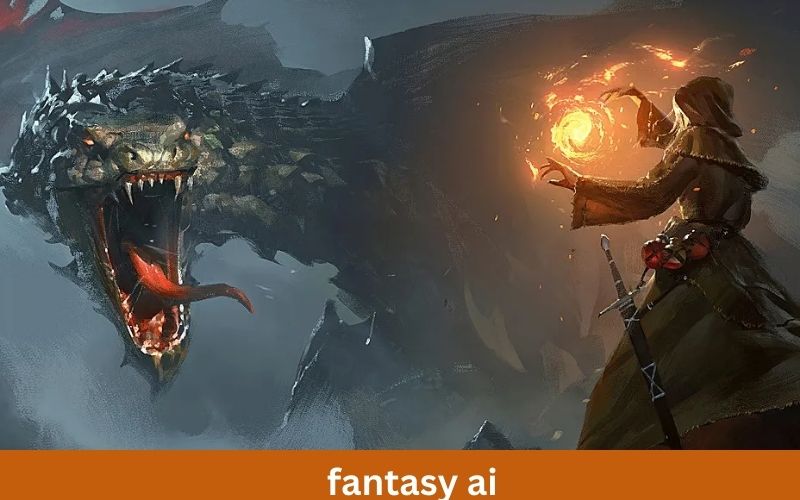In the realm of artificial intelligence, a captivating subfield has emerged, blending the fantastical with the functional. Fantasy AI, a term that might conjure images of sentient dragons and talking trees, is rapidly transforming industries and reshaping our perception of what’s possible. Let’s embark on a journey through this enchanting realm, exploring its groundbreaking innovations, mind-blowing applications, and the ethical considerations that accompany its rise.
The Intersection of Fantasy and AI
Fantasy is not about creating mythical creatures or building magical realms; it’s about harnessing the power of AI to enhance our creative endeavors and explore the boundless possibilities of human imagination. By leveraging AI’s ability to process vast amounts of data, recognize patterns, and generate new content, we can bring our wildest dreams to life.
Innovative Applications of Fantasy AI
- Personalized Storytelling: Gone are the days of static narratives. AI can generate personalized stories tailored to individual preferences, creating immersive experiences that feel like stepping into a unique world.
- Virtual Worlds and Games: Imagine stepping into a fantasy realm where every character, object, and environment is dynamically generated by AI. Fantasy AI is making this a reality, creating immersive virtual worlds that captivate players and inspire creativity.
- Creative Content Generation: From writing poetry to composing music, AI is proving to be a valuable tool for artists. By analyzing vast datasets of creative works, AI can generate new ideas, styles, and compositions, sparking inspiration and pushing boundaries.
- AI-Powered Character Design: Creating compelling characters is a cornerstone of fantasy storytelling. AI can assist in generating unique character concepts, designing visually stunning appearances, and even developing complex backstories.
- Fantasy Language Creation: Ever wondered what a language spoken by elves or dragons might sound like? Fantasy AI can help create entirely new languages, complete with grammar rules, vocabulary, and pronunciation.
Ethical Considerations and Challenges
As with any powerful technology, the development and application of fantasy AI raise important ethical questions. Concerns include:
- Intellectual Property: Who owns the creative content generated by AI? How do we protect the rights of human creators?
- Bias and Discrimination: AI algorithms can perpetuate biases present in the data they are trained on. It’s crucial to ensure that fantasy AI systems are developed and used in a fair and equitable manner.
- Job Displacement: As AI becomes more capable of creative tasks, there is a risk of job displacement for human artists and writers. It’s important to address these concerns and explore ways to mitigate the negative impacts.
Additional Points on Fantasy AI
1. Collaborative AI: Fantasy AI can foster collaboration between humans and machines by providing tools and inspiration. For example, AI-powered writing assistants can suggest plot twists, characters, or dialogue, while human authors can provide the creative spark and ensure the story aligns with their vision.
2. Accessibility and Inclusivity: Fantasy AI can make creative expression more accessible to people with disabilities. By providing tools that can assist with tasks like writing, drawing, or composing music, AI can empower individuals to explore their creative potential.
3. Educational Applications: AI can be used to create engaging and immersive learning experiences. For example, students can explore historical events or scientific concepts through interactive fantasy worlds, making learning more fun and memorable.
4. Therapeutic Potential: AI can have therapeutic benefits, particularly for individuals struggling with mental health challenges. By creating safe and supportive virtual environments, AI can help people cope with stress, anxiety, or depression.
5. Future Directions: As fantasy AI continues to evolve, we can expect to see even more innovative and exciting applications. For example, AI-powered virtual reality experiences could transport us to fantastical realms, while AI-generated art could challenge our understanding of creativity and beauty.
6. Ethical Considerations: Privacy and Surveillance: Fantasy AI applications may involve collecting and processing large amounts of personal data. It’s crucial to ensure that privacy and data protection are prioritized to prevent misuse and protect individuals’ rights.
7. Interdisciplinary Collaboration: The development of AI requires collaboration between experts from various fields, including computer science, artificial intelligence, psychology, philosophy, and the arts. By working together, these experts can address the challenges and opportunities presented by this emerging technology.
8. Cultural Impact: Fantasy AI has the potential to shape and influence culture in profound ways. By creating new forms of expression and storytelling, AI can challenge our preconceptions and expand our understanding of the human experience.
Conclusion
Fantasy AI is a fascinating field that holds immense potential to enrich our lives and inspire creativity. By blending imagination with technology, we can create extraordinary experiences, explore new frontiers, and push the boundaries of what is possible. However, it’s essential to approach this technology with caution and address the ethical challenges that arise. As we continue to develop and refine AI, let us strive to harness its power for the benefit of humanity and the preservation of human creativity.




